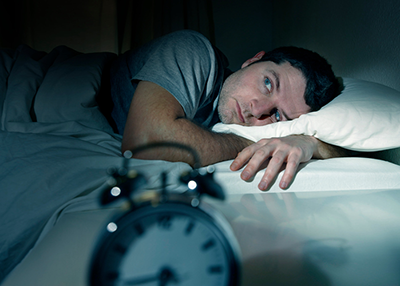Study Raises Questions About Effectiveness of Prazosin for PTSD-Related Sleep Disorders
Abstract
A multisite Veterans Affairs study suggests this adrenergic agent may not reduce nightmares or improve sleep quality in veterans, though factors such as unscreened sleep apnea may have affected the results.
People with posttraumatic stress disorder (PTSD) frequently have nightmares related to their traumatic experience, which leads to impaired sleep. These sleep problems are one of the most debilitating aspects of PTSD.

“Sleep is the problem that I hear patients complain about the most,” Anne Germain, Ph.D., an associate professor of psychiatry, psychology, and clinical and translational science at the University of Pittsburgh Medical Center (UPMC), told Psychiatric News. “They tell me, ‘If I could only sleep better, I could handle my stress better during the day.’”
There are multiple pharmacological and psychotherapeutic options to alleviate sleep problems in PTSD patients. One medication that has shown some promise in treating PTSD-sleep disruption is the antihypertensive medication prazosin. Prazosin targets alpha-adrenergic (adrenaline-related) receptors, which have been implicated in hyperarousal. Some studies suggest that reducing the activity of these receptors could reduce the nightmares that lie at the heart of many PTSD sleep issues.
Several small clinical studies have supported the use of prazosin to alleviate chronic nighttime PTSD symptoms; however, a larger and longer study published in February in the New England Journal of Medicine suggests that this medication may not be that effective, at least among veterans with PTSD.
Murray Raskind, M.D., director of the Mental Illness Research, Education and Clinical Center at the Veterans Affairs (VA) Puget Sound Health Care System, led this study, which enrolled 304 veterans from VA medical centers across the United States. Half of the participants received prazosin and the others received placebo for 26 weeks. Women in the study assigned to prazosin received a maximum dose of up to 2 mg at midmorning and 10 mg at bedtime; men received a maximum of 5 mg of prazosin at midmorning and 15 mg at bedtime.
Patients in the prazosin and placebo groups reported similar outcomes after 10 weeks, including the severity and frequency of distressing dreams (measured by the Clinician-Administered PTSD Scale), sleep quality (measured by the Pittsburgh Sleep Quality Index), and global functioning (measured by the Clinical Global Impressions scale). The similarities between the two groups remained for the 26-week trial.
“These results are disappointing since we are always on the lookout for good medications to treat our veterans,” said Germain, who also is the director of UPMC’s Military Sleep Tactics and Resilience Research Team. “However, my hope is that as rigorous as this trial was, we don't discard prazosin from our toolkit.”
Germain, who was not involved in this study, noted that several elements of the study design may have made it more difficult for researchers to measure the effects of prazosin on sleep. While some previous studies of prazosin have excluded patients with sleep apnea, Germain noted that Raskind and colleagues did not screen for sleep apnea.
Germain said that in general servicemembers and veterans have much higher rates of sleep apnea compared with the general population. This includes individuals who do not show the typical risk factors such as obesity or a snoring problem. Sleep apnea involves temporary breathing pauses during the night, which disrupt normal sleep patterns. These disruptions lead to a fitful night’s sleep—often unnoticed by the patient— that might interfere with or mask the therapeutic effect of prazosin.
The current study also consisted entirely of veterans, whereas Raskind’s previous clinical trial involved 67 participants who were active-duty soldiers. In that study, participants taking prazosin experienced greater sleep improvements than those taking placebo. Germain said that she has noticed that prazosin seems to work better in younger patients with stronger nightmares in her clinic as well.
“Perhaps the most important lesson from this trial is a reminder that PTSD is a cluster of disorders that share trauma exposure as a cause but that can manifest with different combinations of symptoms,” wrote Kerry Ressler, M.D., Ph.D., a professor of psychiatry at Harvard Medical School, in a NEJMeditorial that accompanied this study.
“Even though rational neuronal system-based therapy, including [alpha] a1-adrenergic antagonism, may fit neatly with our current understanding of the disorder, only a subgroup of the millions of patients with PTSD may respond to an approach targeting [alpha] a1-adrenergic receptors,” Ressler continued.
The Prazosin and Combat Trauma PTSD Trial was supported by the Department of Veterans Affairs Cooperative Studies Program. ■



